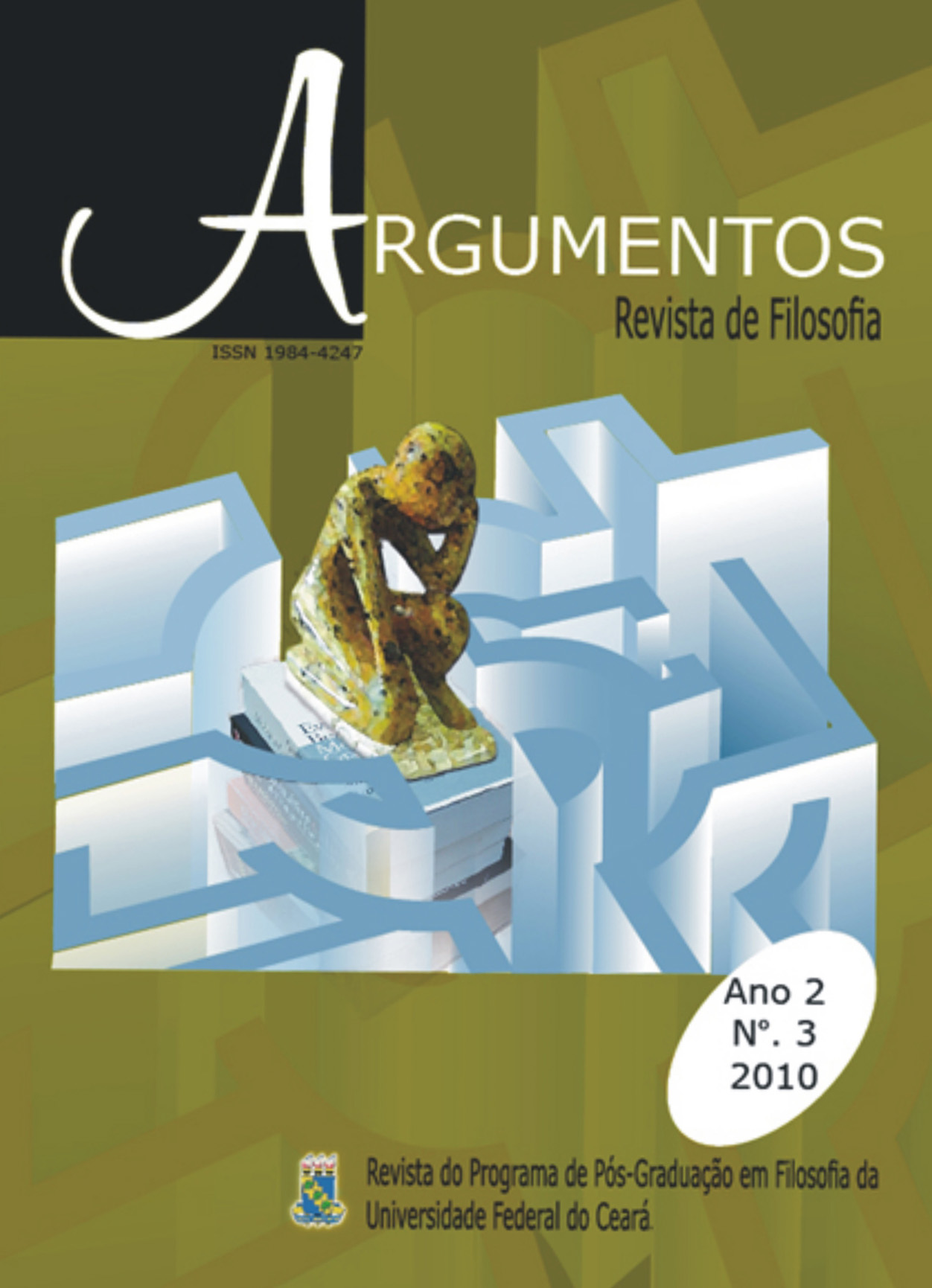Nietzsche: resentment and the slave transmutation of morals
Keywords:
Nietzsche. Resentment. Moral slave. Values.Abstract
This article discusses the nietzschean’s criticism about the values that permeate our culture. And evaluating these values, says Nietzsche, is to put in discussion, first and foremost, the cultural transvaluation promoted by Judeo-Christian morals, from its ground – that is the resentment. In his Genealogy of moral, more precisely in its first dissertation, the author makes an assessment of how the values “good and bad”, created by a moral of lords, transformed into “good and evil” respectively, by a moral of slaves. According to him, all values established by our culture are nothing more than the result of a transvaluation of the noble values, originated from strong and free people, towards a culture of weak and decadent values, forged by slave and weak people. A metaphysical moral that finally provides the weak a meaning for his life and suffering. Thus, based on his assessment, we try to place here that, for Nietzsche, the resentment occupies a central place in the history of the emergence of a particular form of valuation, the slave one.Downloads
Published
Issue
Section
License
Argumentos magazine is licensed under an International Creative Commons Attribution License.
The Magazine uses CC BY inclusion
1) The authors retain the copyright granted to the magazine or the right to initial publication, with the work regularly licensed under the Creative Commons Attribution, which allows the sharing of the work with acknowledgment of authorship and initial publication in this magazine.
2) The authors are authorized to contract additional applicable contracts, for non-exclusive distribution of the version of the work published in this journal (for example, publication in the institutional repository or as a chapter of the book), recognition of authorship and initial publication in this journal.
3) Authors are authorized and encourage to publish and distribute their work online (for example, in institutional repositories or on their personal pages) at any time before or during the editorial process, as they can generate productive changes, as well as increase the impact and reference of published work.




.jpg)










._._3.png)
1.jpg)
._._._.png)
